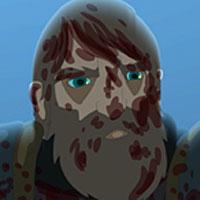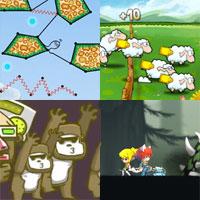
GDC Online Speaker Spotlight: BioWare's Levy Talks Dragon Age: Legends
BioWare San Francisco producer Ethan Levy recently looked back on the Google+ and Facebook-based Dragon Age Legends, noting that brand recognition, core-focused gameplay, and some key marketing tactics helped the game find a dedicated audience on social platforms.
The game launched this March alongside Dragon Age II, and serves as a turn-based spinoff of the mainline Dragon Age series. As of this writing, Dragon Age Legends sees more than 220,000 monthly active users, according to AppData.
Levy played a key role in the game's creation from day one, and in fact was the first employee to join the BioWare San Francisco studio (formerly known as EA2D). Previously, he served as lead producer on the game's predecessor, Flash game Dragon Age Journeys, and has experience working at casual game poublishers like PlayFirst and iWin.
At next week's GDC Online in Austin, Texas, Levy will host a metrics-heavy talk titled, "Dragon Age Legends' Road to 100k Likes," which will go over the successes and lessons learned for the game's pre and post launch marketing strategy.
In this interview, Levy speaks out on some of the other key factors that contributed to Dragon Age Legends' success, and discusses the ways in which social games can reach out to core players.
What factors do you think most contributed to Dragon Age Legends' success?
I would cite two key factors in contributing to Dragon Age Legends' success. The first is being tied to a big brand in Dragon Age, and having strong support from the core franchise owners in BioWare's Edmonton studio. Being closely tied to the HD game's release and having custom items players could earn in Dragon Age II by playing Dragon Age Legends was a key part of our early momentum, and being part of the Dragon Age brand meant we received a lot more notice from fans and press then if we were just some startup releasing "Dragon Puncher" on Facebook.
The second factor I would cite is the game's core gameplay loop. At the time we released Legends, and still to this date, few social network games feature what a core gamer would recognize as gameplay. Many social network games more closely resemble activities or addiction machines in the eyes of gamers. By having a strong gameplay loop with fun and meaningful combat, we were able to create a game that was accepted by BioWare and Dragon Age fans as authentic.
What were some of the marketing tactics you employed for Dragon Age Legends? Which ones did you find most useful?
Pre-launch, we employed some tried and true tactics from the console marketing world. This included press releases, a cinematic trailer, a closed beta program with beta key programs on major enthusiast outlets, email marketing and cross promotion with other EA games and communication channels.
Of these, we were especially happy with the results of the closed beta program, which helped drive a lot of excitement and awareness of Legends. The cross-promotional and email marketing efforts driven by EA's Play4Free publishing group have also been a bright spot for Legends, as they have allowed us to derive a lot of value from EA's existing player base.
















